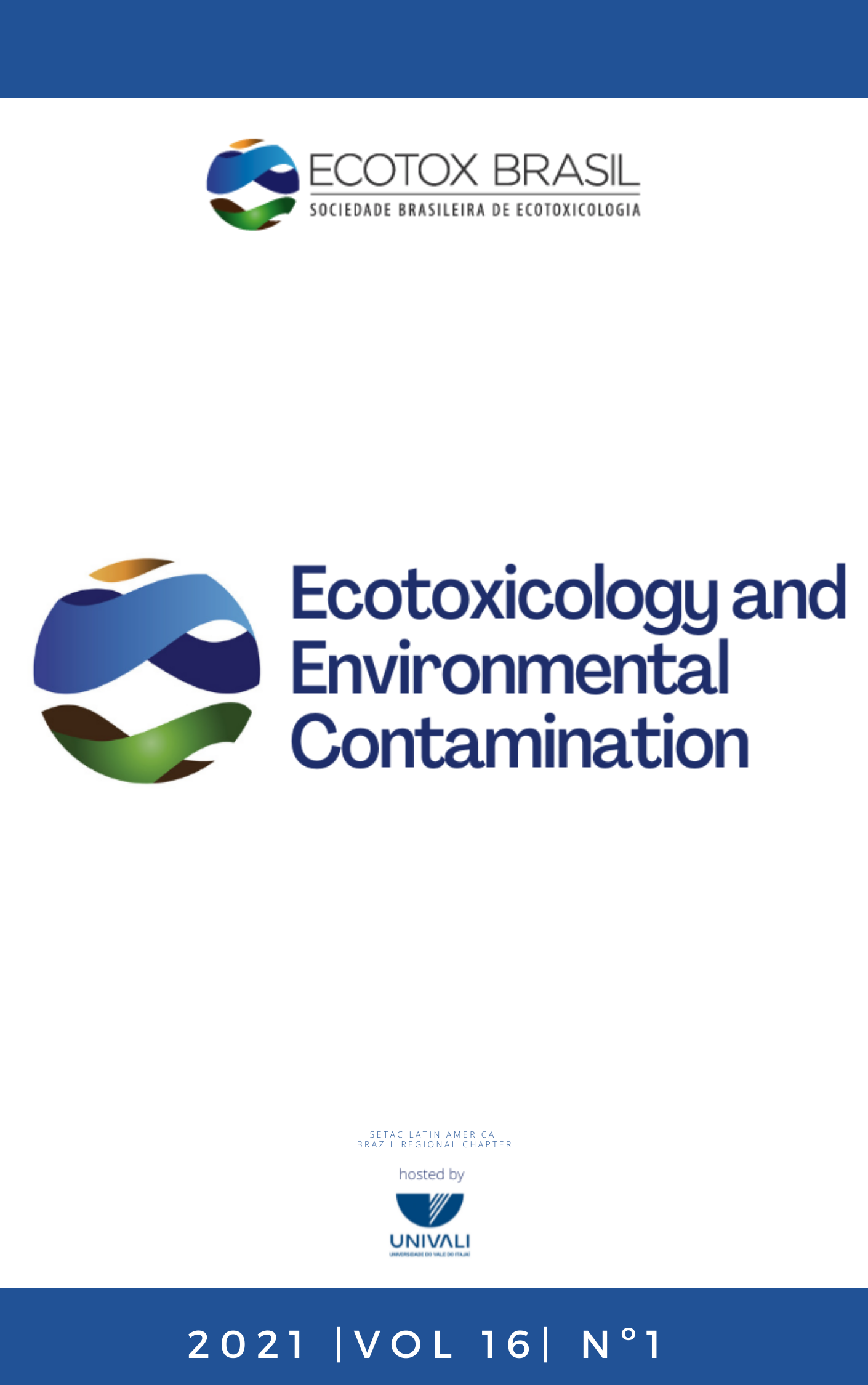Fluoxetine can make marine organisms unhappy: a study on the sub-lethal effects on marine invertebrates
DOI:
https://doi.org/10.5132/eec.2021.01.03Abstract
The environmental effects caused by selective serotonin reuptake inhibitor drugs have been investigated for marine organisms and coastal ecosystems but are scarce in neotropical organisms. This investigation aimed to evaluate the sublethal effects of fluoxetine on the embryonic development of the sea urchin Echinometra lucunter and the survival and swimming behavior of the brine shrimp Artemia sp. The organisms were exposed to four different concentrations of fluoxetine (30, 300, 3000 and 30000 ng L-1) and to a negative control (filtered seawater), following the respective standard testing protocols. We verified a significant reduction of the embryos development to pluteus larvae, starting from 3000 ng L-1 (54.0±10.9% normal larvae), in comparison with the controls (83.5±3.1%). The non-observed effect concentration (NOEC) was estimated at 300 ng L-1, and the lowest observed effect concentration (LOEC) was 3000 ng L-1. In the behavior tests with Artemia sp, no significant adverse effects were reported for mobility, swimming speed and inactivity time. These results show that Fluoxetine can interfere on the development of species like the sea urchin E. lucunter, but short term exposure did not affected the swimming behavior of the brine shrimp Artemia sp. Fluoxetine presents thus a potential to affect marine biota and disrupt the equilibrium of the coastal ecosystems.Downloads
Downloads
Published
How to Cite
Issue
Section
License
Copyright (c) 2021 Ecotoxicology and Environmental Contamination

This work is licensed under a Creative Commons Attribution 4.0 International License.
Copyright © 2006 ECOTOX-Brasil
Copyright notice: It is a condition for publication that manuscripts submitted to this journal have not yet been published and will not be simultaneously submitted or published elsewhere. By submitting a manuscript, the authors agree that copyright for their article is transferred to the Sociedade Brasileira de Ecotoxicologia (ECOTOX-Brasil) if and when the article is accepted for publication. The copyright covers the exclusive rights to reproduce and distribute articles, including reprints, photographic reproductions or any other reproduction of a similar nature, including translations. No part of this publication may be reproduced, stored in a retrieval system or transmitted in any form or by any means, electronic, mechanical, photocopying, recording or otherwise, without permission of the publisher.
Notice: While every effort is made by the EEC, editors and editorial board to see that no inaccurate or misleading data, opinions or statements appear in this journal, they wish to make it clear that the contents of the articles and advertisements published herein are the sole responsibility of the contributors or advertisers concerned. Accordingly, the EEC, the editorial board and editors and their respective employees, officers and agents accept no responsibility or liability whatsoever for the consequences of any inaccurate or misleading data, opinion or statement.




